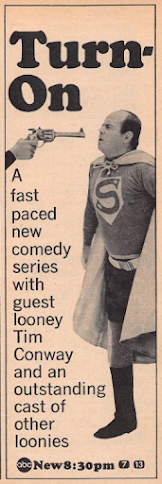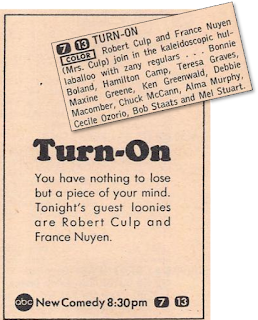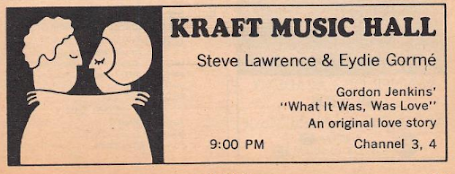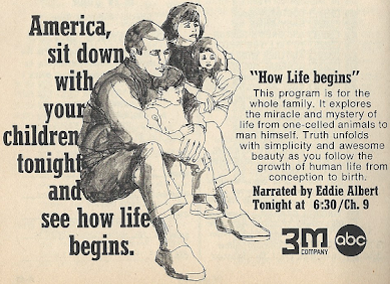 I think I've written this before—by the way, people sometimes think writers are able to remember pretty much everything we've ever written, and that we're able to recall things at a moment's notice. I'll have someone ask me why I had Winter do what he did on page 142 of The Car, and meanwhile I'll be thinking, "I wrote that?" And when you tell them, they'll ask you in an insinuating way if you actually write your own material. Well, I'd gladly take someone up on that offer, but I'm afraid you'll like them better than you like me, and then the gig will be up.
I think I've written this before—by the way, people sometimes think writers are able to remember pretty much everything we've ever written, and that we're able to recall things at a moment's notice. I'll have someone ask me why I had Winter do what he did on page 142 of The Car, and meanwhile I'll be thinking, "I wrote that?" And when you tell them, they'll ask you in an insinuating way if you actually write your own material. Well, I'd gladly take someone up on that offer, but I'm afraid you'll like them better than you like me, and then the gig will be up. But I digress (and I think I've written this before as well). I think I've written this before, but one of the first things I look for in a TV Guide is a hook, something that I can start off with, which usually allows the rest to fall into place. I've even been known on occasion to reject an issue because there was nothing there to get me started. Those cases are few and far between, but still, unless I'm familiar with an issue, there's that moment of suspense: will I find what I'm looking for, something that jumpstarts the week. Does this issue of February 1, 1969, have anything for me?
And there it is:
The TV Guide of May 17, 1969, goes in-depth on what it called "The Biggest Bomb of the Season" (yes, I do remember having written that), and it's interesting to look back on how intense the response to Turn-On was, particularly by ABC's affiliates. Robert Doubleday of KATV in Little Rock, one of the show's most outspoken critics, said the network should have listened to people like him warning that "most people still have standards of taste and morality." "It would be a good idea," he said, "to load those people who do those TV series into Greyhound buses and take them on a trip across the country to show them how the rest of the people live."
What's particularly interesting to me is that we have the next week's TV Guide which, due to printing deadlines, still lists the never-seen second episode (here's a clip from it, proving at least that it exists), and one could speculate on what would have happened had the show not been pulled from the schedule so abruptly. Would it simply done its 13-week run and then disappeared? Would the controversy have been replaced by ambivalence, even disinterest? (That might have been even worse.) Would the humor have gotten tamer and lamer as time went on, or would the producers have doubled down on it? Might it even have caught on in certain circles, such as college campuses? Most important of all, what would Cleveland Amory have thought of it? I'll leave all this to people smarter than me to figure out, but it makes for amusing speculation.
*Nine of the ten shortest-lived series of all time, including several that didn't make it to a second episode, have come since 1995.
 During the 60s, the Ed Sullivan Show and The Hollywood Palace were the premiere variety shows on television. Whenever they appear in TV Guide together, we'll match them up and see who has the best lineup.
During the 60s, the Ed Sullivan Show and The Hollywood Palace were the premiere variety shows on television. Whenever they appear in TV Guide together, we'll match them up and see who has the best lineup.
Sullivan: Tentatively scheduled: singers Sergio Franchi and Vikki Carr, the rocking Vanilla Fudge and Temptations, comedians Stiller and Meara, Jacques d'Amboise of the New York City Ballet and the Antonettes, novelty act.
Remember, all this was long before it became customary for a network to pull the trigger on a program so quickly.* Up to that point, the show voted Most Likely to Be Remembered as a Total, Abject Failure was The Tammy Grimes Show, and that at least made it for four episodes before it was yanked. (According to TV Guide, that was a disaster, but not a bomb.) And then there's Jackie Gleason's You're in the Picture, another of television's famous Titanics; true, the show wasn't very good, but one could argue that it's remembered more because of Gleason's brilliant apology the next week. Technically, I suppose you could describe it as a single series consisting of one episode of Picture, one episode consisting of Gleason's apology, and eight episodes of The Jackie Gleason Show, the talk show that filled out the ten-week run.
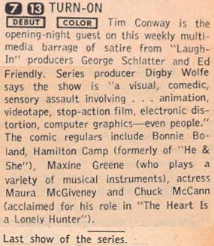 |
| Fixed. |
There have been others since then; Andy Griffith once had two series cancelled in the same season. And I believe there have been a couple of series that were actually cancelled before they aired. But few of them have the fame, or infamy, of Turn-On. When a network acts this drastically, there's no way to keep it quiet, and Turn-On probably became more famous because of it than if it had simply run its course. After all, we're still talking about it, right?
l l l
 During the 60s, the Ed Sullivan Show and The Hollywood Palace were the premiere variety shows on television. Whenever they appear in TV Guide together, we'll match them up and see who has the best lineup.
During the 60s, the Ed Sullivan Show and The Hollywood Palace were the premiere variety shows on television. Whenever they appear in TV Guide together, we'll match them up and see who has the best lineup.Sullivan: Tentatively scheduled: singers Sergio Franchi and Vikki Carr, the rocking Vanilla Fudge and Temptations, comedians Stiller and Meara, Jacques d'Amboise of the New York City Ballet and the Antonettes, novelty act.
Palace: Host Don Adams swings the spotlight on singers Tony Martin and the Lettermen, dancer Barrie Chase, comic Joey Forman, Ruth Buzzi and Alan Sues of Laugh-In, the juggling Half Brothers and illusionist Igor Kio from the Moscow State Circus.
Neither show has a great lineup this week, neither show has a bad one. I'm not a great fan of Laugh-In (personal preference only), so Alan Sues and Ruth Buzzi aren't going to do anything for me. Barrie Chase is a terrific dancer, but then so is Jacques d'Amboise. I think, although I'm not positive, that Sergio Franchi and Vikki Carr edge out Tony Martin and the Lettermen, so on that very narrow basis, I'm giving the edge this week to Sullivan.
 Throughout the 60s and early 70s, TV Guide's weekly reviews were written by the witty and acerbic Cleveland Amory. Whenever we get the chance, we'll look at Cleve's latest take on the shows of the era.
Throughout the 60s and early 70s, TV Guide's weekly reviews were written by the witty and acerbic Cleveland Amory. Whenever we get the chance, we'll look at Cleve's latest take on the shows of the era.
"Teacher, Teacher" ends just in time for you to switch to ABC for part one of Sparticus (9:00 p.m.), the epic adaptation of Howard Fast's novel about a slave revolt against the Romans in the 1st Century B.C., directed by Stanley Kubrick, written by Dalton Trumbo, and starring Kirk Douglas, Laurence Olivier, Charles Laughton, Peter Ustinov, and Tony Curtis. Judith Crist is of two minds about it; it's the rare epic that deals with serious political and social issues, with fine performances particularly from the supporting characters, and has moments that are "literate and even witty." On the other hand, it's also "uneven and dawdling," and Curtis provides "unwitting low-comedy relief as a Bronx-accented Roman poet." Part two airs at the same time next week; Crist thinks "the timing of the film may be helped immeasurably."
l l l
 Throughout the 60s and early 70s, TV Guide's weekly reviews were written by the witty and acerbic Cleveland Amory. Whenever we get the chance, we'll look at Cleve's latest take on the shows of the era.
Throughout the 60s and early 70s, TV Guide's weekly reviews were written by the witty and acerbic Cleveland Amory. Whenever we get the chance, we'll look at Cleve's latest take on the shows of the era. For those of you who thought that perhaps Cleveland Amory didn't come out during the daytime, guess again. Thanks to a week in bed with the flu, Cleve had the opportunity to become acquainted with Dark Shadows. "At the end of the week, by which time we had decided that this series was, in our considered judgment, the worst in the history of entertainment, we found that when Saturday came and there was no show, we missed it." And that, he says, is the key to the success of this gothic soap opera: "[T]he worse it is, the more you'll love it."
But wait: it gets better. "No matter how terrible you may think an idea is—wait, hold your judgment. The execution of it will be so bad that, in retrospect, the idea seems terrific." The same goes for the dialogue; "once you've seen that action, you will look back on that dialogue as manna from heaven combined with the balm of Gilead." Nobody, but nobody, escapes Cleve's tongue. Joan Bennett, who played Elizabeth Collins Stoddard until she was killed off a few weeks ago, "plays this part as if she'd just forgotten where she'd put it." But then, considering your star is Barnabas Collins (Jonathan Frid), "your friendly neighborhood vampire," who's been dead for 200 years, anything is possible. Frid "is at his best—i.e., worst—when he's discovering something for the fourth time that somebody else has already discovered for the third." And then there are the children, Amy and David (Denise Nickerson and David Henesy): "We swear to you that if we see those two talking to that ghost Quentin through that disconnected telephone one more time, we will call them on a connected telephone and read them his review collect."
Does Amory really like Dark Shadows? What do you think? He concludes with a look at Dan Curtis, the executive producer of Dark Shadows. He declares that he "dreamed the whole story of Dark Shadows during, he says, 'a big sleep in upstate New York.' " Says Cleve, "In that case all you can think, or hope, or even pray is that Mr. Curtis never, ever gets that tired again."
l l l
It's too bad Turn-On overshadows the rest of the programming on Wednesday, because it's a notable night of entertainment, beginning with the Hallmark Hall of Fame production of "Teacher, Teacher" (7:30 p.m. PT, NBC) starring David McCallum as a tutor trying to rebuild a life shattered by drinking and divorce; Ossie Davis, a handyman denied other opportunities because of his race; and Billy Schulman as the retarded youngster who becomes central to their lives. "Teacher, Teacher" goes on to win critical and popular acclaim, as well as an Emmy for Outstanding Dramatic Program; Schulman, himself retarded, is nominated for Supporting Actor. Even if Shakespeare is too highbrow for today's Hallmark Channel, you'd think that a moving story of redemption like this—no, Hadley, don't go there again. Just don't. (You can watch it here.)
"Teacher, Teacher" ends just in time for you to switch to ABC for part one of Sparticus (9:00 p.m.), the epic adaptation of Howard Fast's novel about a slave revolt against the Romans in the 1st Century B.C., directed by Stanley Kubrick, written by Dalton Trumbo, and starring Kirk Douglas, Laurence Olivier, Charles Laughton, Peter Ustinov, and Tony Curtis. Judith Crist is of two minds about it; it's the rare epic that deals with serious political and social issues, with fine performances particularly from the supporting characters, and has moments that are "literate and even witty." On the other hand, it's also "uneven and dawdling," and Curtis provides "unwitting low-comedy relief as a Bronx-accented Roman poet." Part two airs at the same time next week; Crist thinks "the timing of the film may be helped immeasurably."
With all of that, it's easy to overlook Kraft Music Hall (9:00 p.m., NBC) with Steve Lawrence and Eydie Gorme in "What It Was Was Love," an original suite of songs written and arranged by Gordon Jenkins "as a scrapbook for Steve and Eydie," who had one of the most enduring marriages in show business. With St. Valentine's Day just around the corner, it's not a bad reminder of the important things in life.
Wednesday is the best night of the week by a long way, but there are some other shows of interest, such as Firing Line (Sunday, 7:00 p.m., NET), when William F. Buckley Jr. is joined by our own Cleveland Amory and former bullfighter Barnaby Conrad to discuss animal rights. I also like the program on opposite it, a 1967 BBC production of The Mikado (7:00 p.m., KPIX) starring Cyril Ritchard in the title role with the famed British comedian Harry Worth as Ko-Ko; according to the always-reliable Wikipedia, it's the first-ever color presentation of the Gilbert & Sullivan classic.
There's some prime-time boxing on Monday, which I'm fairly sure I would have watched with my grandfather; George Chuvalo takes on Buster Mathis in a bout between two of the world's top heavyweights, live from Madison Square Garden (7:00 p.m., syndicated). First Tuesday (Tuesday—duh—9:00 p.m., NBC), the Peacock Network's monthly newsmagazine, includes a look at American preparations for chemical warfare, including "animals dying 44 seconds after exposure to nerve gas; human volunteers and animals in 'infection studies'; the manufacture of nerve gas and nerve gas artillery shells; and, briefly, top-secret Pine Bluff (Ark.) Arsenal, a pilot 'germ production' plant." My former home of Minneapolis was the site of chemical warfare experiments in the 1950s; I'll let the morality of all this stand without comment. And on Friday, NBC pre-empts Star Trek for the third-season opener of Experiment in Television (10:00 p.m.), "This is Sholom Aleichem," a series of skits based on the life of Yiddish writer whose short stories were adapted into Fiddler on the Roof. After tonight's episode, the show will be seen on Sunday afternoons, which is probably a good thing.
l l l
I shouldn't forget mentioning a couple of articles of interest. First is Leslie Raddatz's profile of Stephen Young, co-star of ABC's Judd, for the Defense, and since Judd is a program I thoroughly enjoy, I figured I should mention a word or several about it. We find out that the Canadian Young was good enough to earn a tryout with the Cleveland Indians, and he still plays hockey every Sunday night at an arena in Culver City. He's "very aggressive," according to a fellow actor, "but it's a charming aggressiveness. He has a fantastic faith in himself." Carl Betz says Young "just waits to pounce on his lines," and producer Harold Gast says "He's always looking for more to do, so we try to give him a bigger part." He's also popular with his fellow actors; one calls him "a real doll," and another says, "Most of these young actors get fat heads, but not Steve." He's very good in Judd, occasionally getting the lead but never overshadowing Betz. He's also young enough that he's still around today, with his last acting role coming in 2013.
And then there's Robert Musel's witty article about the 74 year-old British aristocrat who's putting his 23-acre French estate up for sale for only $1.2 million. His name is Edward Windsor, although his friends call him David; we know him better as the Duke of Windsor, formerly and for a short time ("Ten months and . . . I can't remember the days . . . oh, 18 days.") he was King Edward VIII. He and his wife, the Dutchess of Windsor, also known as Wallis Warfield Simpson, are being profiled by Harry Reasoner for this week's 60 Minutes (Tuesday, 10:00 p.m., CBS).
The Duke comes across in Musel's article as a man with a dry, self-effacing sense of humor; at one point Reasoner asked him about the desk on which he signed his abdication—would he leave that for the buyer? "Why not?" the Duke shrugged. And after lighting the logs in the fireplace, he looked around for a place to put the match. "I can't leave it in the ash tray or the Duchess will complain," he confided to Musel. "I am very well house trained."
Reasoner skillfully guided the Duke through the interview. asked. At one point he asked, "How did you feel when you were no longer King?" The Duke smiled faintly. "It was a great relief. But I enjoyed my work for my country." He didn't think his abdication made much difference in the long run; "I think about it," he admitted, but added, "I don't think I would have changed to course of history by not abdicating, not in a constitutional monarchy like Britain." After taking Reasoner on a tour of the grounds ("I probably don't have enough money to buy this building," Harry warned), the Duke sank gratefully into a chair. "Never stand when you can sit, never sit when you can lie down," he explained. (My kind of guy.) "What's the authority for that?" Harry asked. "Old age," the Duke replied. "After 60 something's bound to hurt."
The Duke and Duchess come across as charming, pleasant, enjoyable. A young English girl working with Reasoner and his team, remarked that "If there had been television in 1936, if the British people had been able to see her as she really is, there might not have been an abdication." Musel isn't sure; after all, the issue was that Mrs. Simpson was divorced. And how likely is it that they'll ever allow an English King to marry a divorcee?
l l l
Finally, there's one more premiere this week that bears mentioning. On Friday night at 7:30 p.m, ABC presents the debut episode of a new variety show starring an exciting young Welsh singer: This is Tom Jones. Not only does it last longer than Turn-On, it's a lot cooler. And, like Stephen Young, Tom Jones is still around. And you know what? He's still cool. TV



